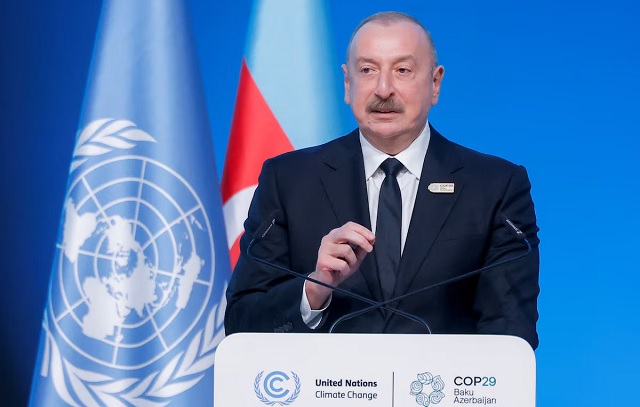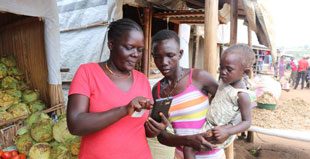
COMMENT | YUSUF MASABA | World leaders and some more than 70,000 delegates from 170 countries descended on the Azerbaijan capital, Baku, for the 29th Conference of the Parties to the UN Framework Convention on Climate Change (COP29) that kicked off on November 11, running till next week on Friday.
With more than half of the UN countries represented to discuss action to the climate crisis, there was a flurry of ambitious pledges and sombre warnings. This, amid discussions on global priorities around energy security, climate financing, and a just transition are urgently taking centre stage.
The UN Climate Summit echoes a critical need for actionable steps from the international community, particularly the G20, to support developing nations facing both the burden of climate change and the challenge of sustainable economic growth.
Against the backdrop of escalating global tensions and resource insecurities, energy security has emerged as a top concern. Less developed countries, many rich in natural resources, seek to tap into their own oil, gas, and minerals to fuel economic growth and improve living standards. However, their efforts are often met with opposition from certain Western powers, which have faced accusations of “double standards” in climate policies, especially by major oil producers and resource-dependent nations.
Azerbaijan’s President Ilham Aliyev, during his opening remarks, highlighted the inconsistency of Western nations in their energy dealings. He reminded delegates that the European Commission itself sought a strategic energy partnership with Azerbaijan, a collaboration initiated by Europe due to its pressing need for energy security. This agreement, signed two years ago in Baku, expanded access to Azerbaijani gas for eight European nations, with plans to double supply by 2027. Yet, despite this reliance, Aliyev noted a tendency among some Western nations to malign resource-exporting countries as “petrol states” rather than recognize their importance in global energy security. His message was clear: natural resources are a right, a resource for nations to responsibly harness for the benefit of their people.
UN Secretary-General António Guterres took a starkly urgent tone, pointing to 2024’s record-breaking temperatures as a marker of the climate crisis’ escalating toll on biodiversity, food security, and livelihoods. The brunt of these impacts falls disproportionately on less developed nations—nations that contribute the least to emissions but face the greatest risks. The solution, as Mr Guterres underscored, lies in a rapid and just transition to clean energy, one that is inclusive and equitable, ensuring no nation is left behind in the global shift to sustainability.
Referencing the Nairobi Declaration—which was adopted to be the basis for Africa’s common position in the global climate change process to COP 28 in Dubai— Secretary-General Guterres emphasised the transformative power of renewable energy to drive industrialisation, economic growth, and sustainable development.
“From Cairo to Cape Town, renewable energy can revolutionize lives,” he said at a fireside meeting “Africa’s Green Momentum: Harnessing Renewables for Industrialisation.”
The urgency for the G20 and other affluent nations to step up in supporting this transition is clear. Rhetoric must yield to real action: climate financing, access to green technology, and the scaling up of adaptation funds need to move beyond promises. The G20, being home to the world’s wealthiest economies and largest polluters, has an ethical duty to provide the means for developing nations to build resilient infrastructures, reduce carbon footprints, and foster local green industries.
Among the critical needs is the doubling of adaptation finance to $40 billion by 2025, as proposed by the UN, along with real commitments toward climate justice through the operationalization of the loss and damage fund. For true climate equity, the “polluter pays” principle should be integrated into global financing, compelling wealthier, high-emission nations to bear a fair share of the climate response burden.
This would also mean overhauling international financial institutions to reduce the crushing debt obligations that hinder many developing countries from investing in climate adaptation. A new financing model is essential—one that allows these countries to grow sustainably and ensures the economic viability of green projects.
The stakes are high: as world leaders meet to discuss a just transition, it’s time to translate words into meaningful support for developing nations. By backing responsible resource extraction and providing the funding and technology for climate resilience, developed nations can help forge a truly equitable path toward a sustainable, prosperous future for all.
******
 The writer is a Corporate Affairs Officer at Petroleum Authority of Uganda |
The writer is a Corporate Affairs Officer at Petroleum Authority of Uganda |
Email: yusuf.masaba@pau.go.ug
 The Independent Uganda: You get the Truth we Pay the Price
The Independent Uganda: You get the Truth we Pay the Price



